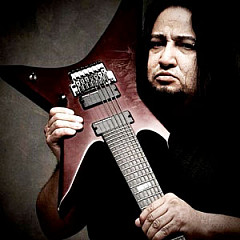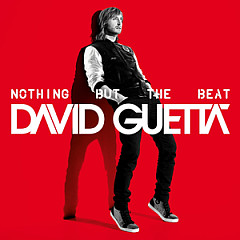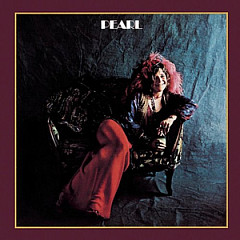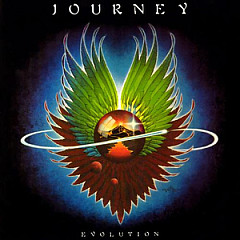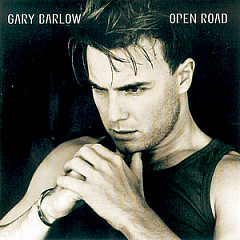Formed in 1980, Overkill has been laying down thrash metal for longer than any of the Big 4 (Metallica, Anthrax, Slayer, and Megadeth). Their mainstays are bass player D.D. Verni and frontman Bobby "Blitz" Ellsworth, who have been there since the inception and handle the songwriting.
Blitz was up for chatting about their 17th studio effort overall, White Devil Armory, as well as the stories behind several thrash classics, overcoming vocal troubles early on, and his appreciation of vintage punk rock.
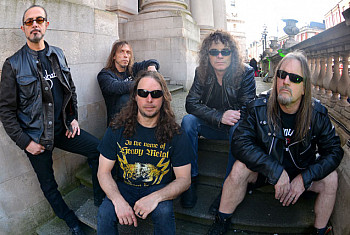 Greg Prato (Songfacts): Let's start by talking about the new Overkill Album, White Devil Armory.
Greg Prato (Songfacts): Let's start by talking about the new Overkill Album, White Devil Armory. Bobby "Blitz" Ellsworth: White Devil Armory, our 17th, it's always hard for me to get really a clear view. It usually takes me a year. But what I've come up with at this point is that it's a really good, eclectic view of what Overkill's about.
Compared to the last record, there's another dimension here. Whether that be the groove or whether that be welcoming back a punk rock riff, or whether that be too much Black Sabbath for breakfast, there are different things that make up Overkill and I think The Electric Age [2012 album] was primarily a fresh record. And I think White Devil Armory holds a balance or a blend of different values that make up Overkill, whether it be punk, rock and roll, thrash, heavy metal, etcetera.
Songfacts: You just mentioned punk rock. I've always thought what was cool about Overkill is that the band was pretty vocal about liking punk, because I know you guys have covered a Dead Boys song ["Sonic Reducer"] and also Sex Pistols ["No Feelings"].
Bobby: I think that if you put the '70s punk rock scene that was exploding in New York and the New Wave of British Heavy Metal into a bag, and you mix it up, whatever came out of that would be Overkill. We've always kept that punk rock attitude, or at least the energy. I don't know if it's necessarily attitude, but for sure, energy within our songs.
It was something that I thought was maybe our X-factor when it came to what made us different. Because we were Ramones fans, we were Dead Boys fans, there was Television, the Heartbreakers, the New York Dolls. All this stuff was exploding in New York when we were kids, late teens. So we were in good proximity to witness some of this.
And anybody reading this knows that the first time music makes you go, "Wow!" and your mouth is open - you can't believe what you're hearing or seeing - is something that always stays with you. And this is what punk rock was about for Overkill. I think it always stayed with us, and we always tried to infuse it into our brand of metal and with that came our individuality.
 Songfacts: How would you say that you write your best songs?
Songfacts: How would you say that you write your best songs? Bobby: Well, it almost always starts with a riff. And when it comes to the riff, I know my partner, D.D. Verni, he's the riff master for Overkill. People will say, "Overkill's identifiably based on Bobby's voice." Well, I can pick a D.D. Verni riff out of 100 other riffs. That's the way I think about it.
So it starts with that riff. And I think one of the cool things - and I'll apply this next part of the answer to White Devil Armory - we always look for a thread, and the thread for this record was "Armory." D.D. was sending me pictures, he was verbalizing it, he was saying, "I'm obsessed with this word, I don't know why I love it. It's ominous, it's big, it's dark, I'm getting this great imagery."
So that thread that he's using to write riffs in this case is "Armory," and I start messing with it. Now, after experimentation, it came out to "White Devil Armory." But that's what he was thinking of.
Songfacts: You just mentioned the album title, White Devil Armory - does that have any specific meaning, that phrase?
Bobby: No, not really. It was a thread. When he's writing "Bitter Pill," "Pig," other songs from the record, I know he's thinking "Armory," and I'm taking it from there. But I messed with it, and I got it written down - my phone bill I just picked up here, it says, "White Devil" right in front of the word "Armory."
The idea was to create imagery, to create something ominous, to create something dangerous, to create something that was aggressive. So I added the two words prior and movies started running in my head. I thought, "Wow, I've hit on something here." So it's creation by us, unto us, for us, just that simple.
Songfacts: Let's discuss a few Overkill songs, starting with "Armorist."
And this is what I mean by abstract. So really we're talking about loneliness right here. And loneliness to the point of anger, but to the point of efficient anger. So that's his introduction into the record, "Armorist."
A few days later, the paper published the letter in a story about the killer, with the headline "Breslin to .44 Killer: Give Up Now!"
At the time, police and media referred to the killer - who turned out to be David Berkowitz - as "The .44 Killer" because of the gun he used. He would soon become better-known as "Son of Sam," which is how he referred to himself in letters.
Bobby: This was a title by a New York journalist named Jimmy Breslin. It was an editorial on David Berkowitz, the Son of Sam killer, and the title was "Hello From the Gutters of New York." Breslin covered Berkowitz, the Son of Sam, through those murders.
This was right around the time that the band was getting together. We would always hang out in Brooklyn and Queens. Berkowitz was actually from Yonkers, but he was murdering young couples that were necking in cars. I'm sure you know the story. But he's one of the most infamous serial killers.
But it was a Breslin title, "Hello From the Gutters of New York." And we turned it into "Hello From the Gutter." Lyrically, I took some of that pomp and circumstance and sensationalism that was going on around that time.
Songfacts: What about the song "Elimination"?
When the band had started in the early '80s, AIDS was "the gay cancer." But by '89, people had a better view of it: it wasn't a gay disease, it was a human disease. The idea behind "Elimination" was to say, "This is about us, it's not about you or about you, it's about us collectively."
Songfacts: And let's discuss the tune "Fuck You."
Bobby: It was written by a punk band out of Vancouver, Canada, called Subhumans. I forget the guy's name who did it. He had some strange name like Jerry Only or Jerry Vicious or Jerry Ridiculous [the band's bassist, Gerry Hannah, went by the alias of "Useless"]. It was a real punk name.
A band called DOA out of Montreal picked it up and covered it. They were another punk band. We went and saw that band do it, and then we just started doing it when we were a cover band. It's been part of our thing the whole time, just part of our shtick.
 Songfacts: You talked a little bit about your singing style before, and I'm curious, have you ever had any vocal problems over the years, and how do you keep your voice in shape?
Songfacts: You talked a little bit about your singing style before, and I'm curious, have you ever had any vocal problems over the years, and how do you keep your voice in shape?Bobby: I did. Early on I started developing what's called polyps, which are kind of warts or nodes. I started getting it on my vocal cords. And it's really just from singing incorrectly. I mean, I really didn't know how to sing, even though my mother sang and it's always been something in our family, I just didn't know how. I'd come home from tours and couldn't talk for two months, which is kind of unusual for a young guy. More common for an older guy.
So I took lessons between Feel The Fire and Taking Over to learn how to sing correctly. And when you do that, if the polyps are not so advanced, they kind of wear themselves away from using your cords correctly. So all the way back in '86 into '87, I started learning how to sing correctly.
To this day is I still use those principles and I warm up for a minimum of a half hour before a show, and then I kind of cool down for another half hour. So an hour before the show I'm doing something, singing somewhere in the bus or a dressing room. The same stuff I had learned all the way back in the '80s.
January 29, 2015. For more Overkill, visit wreckingcrew.com/Ironbound.
More Songwriter Interviews






